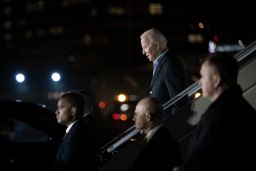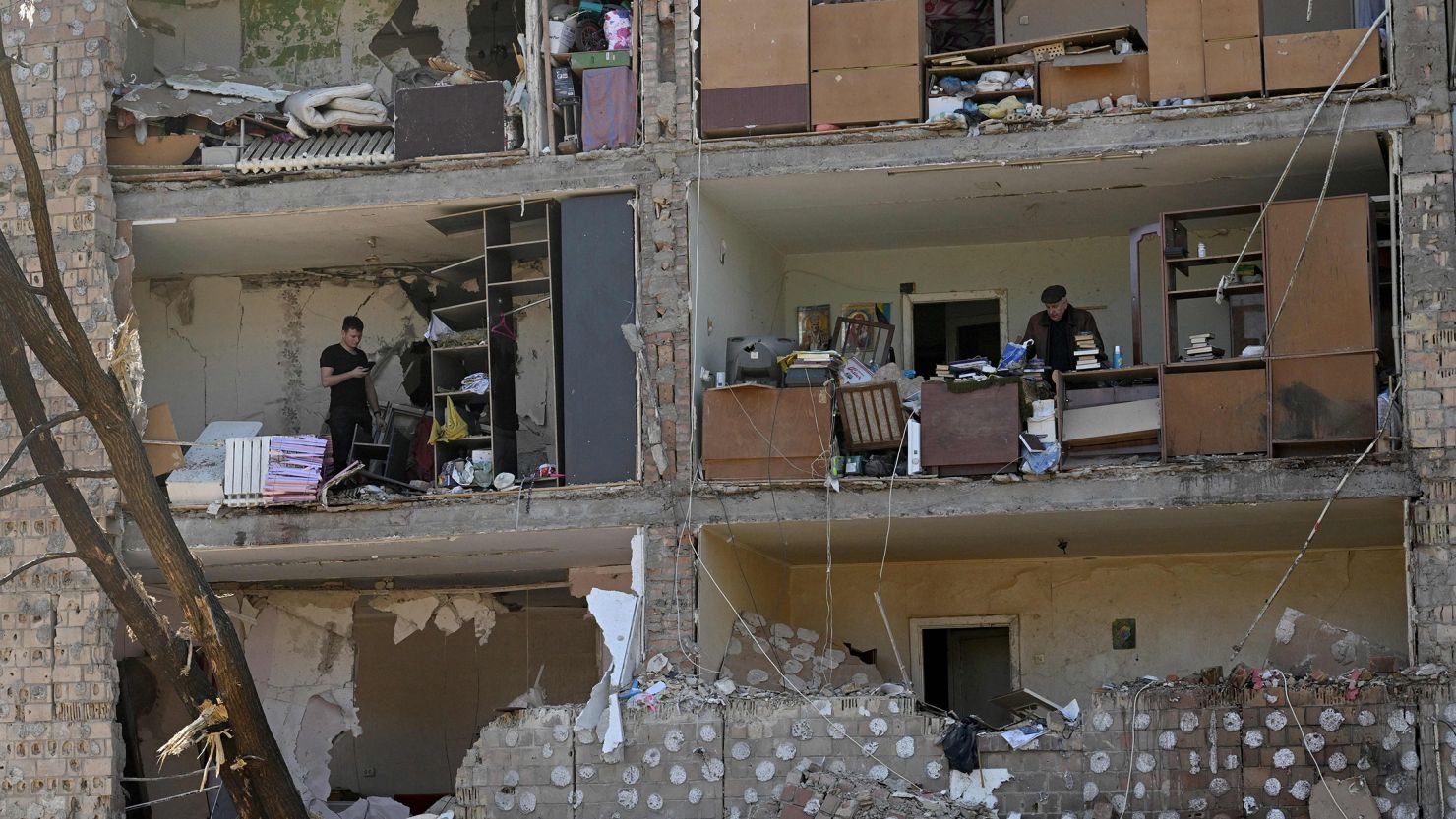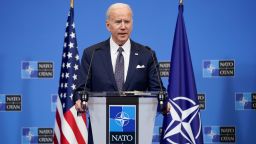The images of suffering grow more heart-rending every day, the appeals from besieged Ukrainian President Volodymyr Zelensky more urgent.
And every day, President Joe Biden faces the same leadership challenge: saying no to direct US military action against Russian forces to stop the carnage Vladimir Putin has wrought.
“No” is not the answer that the American public, let alone Zelensky, wants to hear. But it’s the answer that decades of experience have ingrained not only in Biden but also in many of those charged with protecting America’s national security throughout the nuclear age.
“This is the Cold War scenario we’ve avoided for 75 years, finally coming to life,” observed Tom Nichols, a leading authority on Russia and US nuclear doctrine. “The most important thing for Biden is to ignore all the public noise. That’s hard to do.”
RELATED: In pictures: Biden’s high-stakes trip to Europe
That was the subtext of Biden’s travel last week to demonstrate solidarity with European allies in NATO. They bolstered forces to defend member countries and boosted financial, military and humanitarian aid to Zelensky’s country.
They did not announce a protective no-fly zone over Ukraine, which is not a NATO member.
The reason is as daunting as it is simple. Since World War II, the US and Russia have coexisted with the understanding of “mutually assured destruction,” each nation possessing a nuclear arsenal capable of obliterating the other.
Fear of triggering a catastrophic third world war kept the US and Russia from engaging in direct hostilities throughout the Cold War. Today it undergirds Biden’s determination to avoid pitting allied forces against Russians beyond NATO borders.
Though “humanitarian no fly-zone” suggests peaceful air patrols, imposing one requires NATO pilots to shoot down Russian planes that challenge them. Biden argues that would risk an escalation in attacks leading to a Russian nuclear strike. Experienced military leaders say he’s right.

“People say, ‘Putin won’t do it,’ ” said retired Lt. Gen. Mark Hertling, a former commander of the US Army in Europe who’s now a CNN national security and military analyst. “Oh, really? Can you bet on that?”
If Putin did, Hertling cautioned, a war now producing thousands of casualties could “quickly go into casualties in the millions.”
Dread of that nightmare drove decision-making by President John F. Kennedy in the 1962 Cuban Missile Crisis. Resisting pressure from military advisers to bomb nuclear missile sites the Soviet Union had placed on the island, Kennedy instead imposed a naval blockade. Soviet leader Nikita Khrushchev withdrew the weaponry.
Kennedy used a quiet concession for the Soviets – the promise to remove US nuclear missiles from Turkey – to encourage Khrushchev’s retreat. Putin’s conduct may have foreclosed the possibility of concessions, even as military setbacks make his conduct less predictable.
To avoid provoking Khrushchev during their 13-day face-off, JFK biographer Fredrik Logevall noted in an interview, Kennedy took pains not to “personalize” the conflict. Russia’s attacks on civilian targets compelled the Biden administration last week to brand Putin a “war criminal.”
Over the weekend, the President went even further when he concluded his Warsaw speech by declaring “this man cannot remain in power.” White House officials immediately disclaimed any intention to declare a US policy of regime change in Moscow, insisting Biden referred only to Putin ability to “exercise power over his neighbors” such as Ukraine.
That walk-back of Biden’s ad-libbed line – officials said it was not in his prepared text – signaled a significant lapse of discipline by a President who came into office with a reputation for verbal missteps. By seeming to raise the stakes for Putin, “President Biden just made it harder for Ukrainians to win the war,” tweeted Kori Schake, director of foreign policy studies at the conservative American Enterprise Institute.
Yet on concrete military steps, as opposed to rhetoric, Biden has remained exceptionally careful. In addition to shunning a no-fly zone, he and NATO leaders declined to transfer fighter jets Ukraine has requested from member countries.
They reason that it could prompt Russia to widen the war by attacking the transfer on NATO territory. Some national security specialists see no distinction, as a spark for Russian action, between providing the jets and the other military materiel the allies are already providing Ukraine.
Others want Biden to project more ambiguity about American intentions. Schake echoes the President’s opposition to a no-fly zone but says he could increase pressure on Putin by declining to “telegraph what those limits are.”
The brutality of the conflict keeps changing those limits by enlarging the risks allies are willing to take. Economic sanctions against Russia, which started narrowly, have grown broad and deep. Military assistance for Ukraine has expanded to include more lethal drones, longer-range anti-aircraft weapons and, most recently, anti-ship missiles.
Russian use of chemical or nuclear weapons in Ukraine would further alter the risk calculations. Biden, who has moved carefully throughout the crisis to preserve allied unity, has not specified how.
But as he demonstrated last year in the withdrawal from Afghanistan, for better or worse, the 79-year-old commander in chief with decades of foreign policy experience won’t easily be blown off course.
“Biden has been in enough situations where he understands the importance of thinking through the next move,” said Ivo Daalder, a former US envoy to NATO who is now president of the Chicago Council on Global Affairs.
That hasn’t yielded obvious political dividends. In an AP-NORC poll last week, 56% of Americans said Biden hasn’t been tough enough on Russia. Republican politicians – now distancing themselves from former President Donald Trump’s embrace of Putin – assail Biden as weak.
Nichols, recently retired from teaching at the Naval War College, called that precisely the sort of talk Biden must tune out.
“It’s not a matter of fear, it’s a matter of prudence and caution,” Nichols said. “He really has to resist being goaded by either emotion or pride. But that’s what you pay presidents for.”


